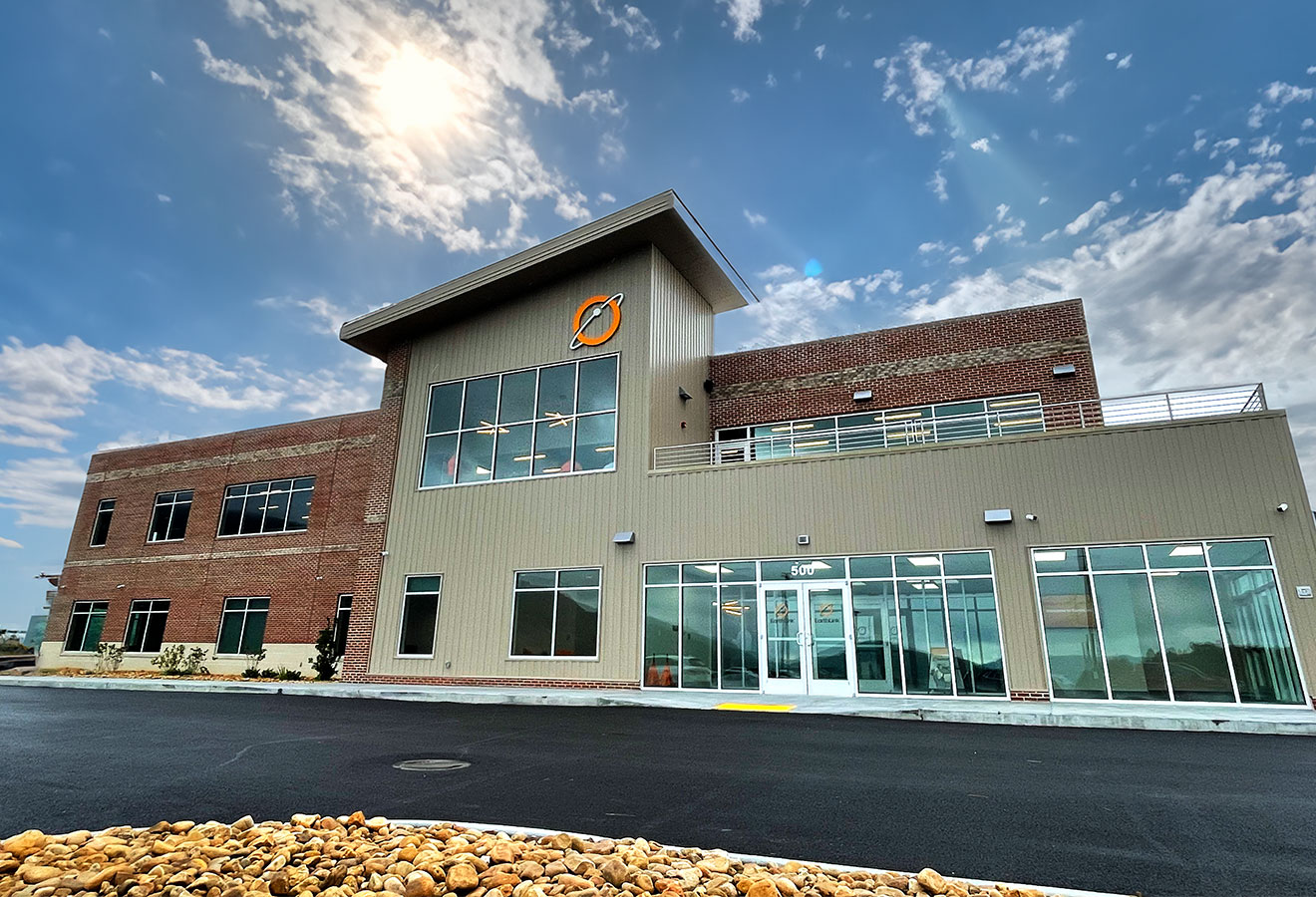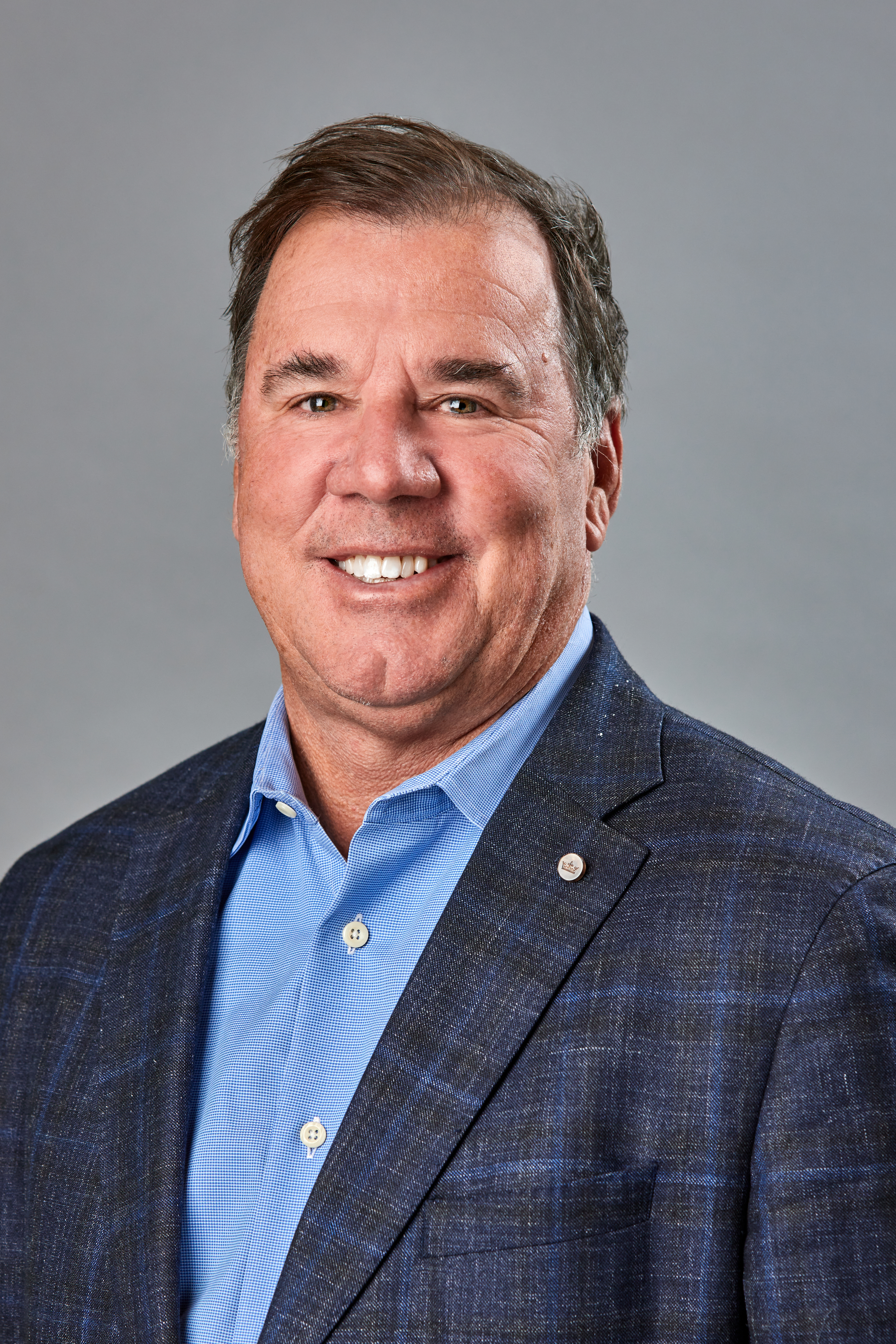EarthLink was a dial-up internet king at the turn of the century. The company still exists, wholesaling other companies’ technology, based on what is available where its customers live.
When Wise County native Glenn Goad and his partners took on the business in December 2018, it had experienced a decade of decline.
“There was no growth. There was no strategy,” Goad, EarthLink’s CEO, said in a recent Zoom call. “And you know, we came in and a lot of people looked at us like we had three heads when we said we’re going to grow this business.”
The past 24 quarters have seen EarthLink’s revenue and net income expand, Goad said of the privately held company. The Atlanta-based entrepreneur brought some of that growth back home, opening the company’s only U.S.-based call center at a business and industrial park in Norton.
The call center, in a new, 28,000-square-foot building, employs almost 100, with a goal of 285 jobs including customer support and sales. Goad, Gov. Glenn Youngkin and others cut the ribbon in August 2024.
He didn’t choose the location simply because he grew up there. He believes in the region and its potential.
“We looked at a bunch of places, and as a CEO and a shareholder in this company, I have to do the right things for this company first,” Goad said. “I can’t put all of our employees at risk because I want to go do something in Wise County. And we looked at a bunch of places in the state of Virginia, [which] partnered with us to put the facility there.
“And it’s the right thing for us as a company. We’re going to do really well there.”
Earthlink’s presence is a “game-changer” for the region, said Duane Miller, executive director of the LENOWISCO Planning District.
“If Glenn Goad was not from Southwest Virginia, EarthLink would not have been on our radar, and we would not have been on EarthLink’s radar,” said Miller, whose office covers Wise, Lee and Scott counties, and the city of Norton. “It’s been a perfect example of just not forgetting your roots, and taking care of your hometown.
“I can’t thank him enough for everything he’s done for Southwest Virginia.” 
Coal ponies and broadband
Goad, 60, grew up in Wise County’s namesake town. He was 9 when he lost his father in a car crash. His uncle R.O. Goad would become his father figure and mentor.
“Back in the days when they used to use ponies to pull the mining cars through the mines, he used to raise ponies and swap them out with all these mine owners,” Glenn Goad remembered. “One of his big businesses was tires and recapping and redoing the treads on large pieces of equipment, like dozers and stuff. He was never a coal operator, but he always had businesses around the coal industry.
“So I got to be side by side with him from a little kid. And he taught me a lot on business acumen, and I give him a lot of credit for how my mind probably works today.”
Goad chose the military over college and became an accountant in the Air Force, assigned to a group dealing with the likes of on-base hotels, clubs for enlisted people and officers, and dining. He left the service after five years and moved to Blacksburg, planning to study hotel and motel management at Virginia Tech.
He took a job at Best Western Radford Inn to support himself, and soon the owner asked if he would be the general manager. Goad again put college on hold (he would eventually matriculate and receive a master’s in technology management at Georgia Tech). He went on to be regional manager for hotels in Virginia, West Virginia and North Carolina.
“I learned how to use data analytics technology long before it was probably a thing,” he said. “Was fascinated by it, quite frankly, out of the hotel industry.”
He added customer acquisition to his tool kit through a job with Ticketmaster City Search, and by 2001 he had branched into third-party companies that acquire customers for vendors, mostly internet providers.
“I’ve spent my time pretty much around helping consumers and small businesses find the appropriate services,” he said. “And a lot of that’s been internet, but some of it was video services or home security or other things around moving.”
The model was to sign up a customer for a service, and earn what Goad called a “one-time bounty” from the service. By 2010, he and his partners had built several third-party companies that acquired customers for brands including AT&T, Verizon, Comcast and Spectrum.

Among the companies was Allconnect, which had worked extensively for EarthLink. Another was Qology Direct, which a digital advertising company called Centerfield bought in 2017.
His next company, nQue Technologies, would realign him with EarthLink. A telecommunications company called Windstream had bought the Atlanta-based EarthLink in 2017 and moved it to Arkansas. When Windstream looked to sell the EarthLink consumer internet business the next year, Goad made a plan. He and a partner had been interested in 2017, and still were.
“And so we went out and put a group together that had the capacity to get in that auction and acquired it,” he said.
Dallas-based private equity firm Trive Capital bought the business for $330 million in cash, according to a Windstream news release. Simultaneously, Trive bought nQue Technologies, with Goad and other executives there taking the reins at EarthLink and moving its headquarters back to Atlanta, looking to grow its sales to residential and business customers.
“And our thesis was really simple: We wanted to bring a boutique internet service to the market that focused on internet only,” Goad said. “We didn’t have to cram bundles down your throat. …
“We were going to build a business that we could do just fine by providing the right speed at the right price with internet only. And the way that we are able to deliver that is we’re not actually the underlying technology. We go out and in broad strokes we wholesale other people’s technology … and deliver it to the consumer in a way that we think is the way consumers are wanting to consume it. And so it’s a very different approach than being a traditional provider.”
The company has its own fixed wireless networks, primarily for business customers, but delivers most of its internet service via third-party partnerships.
Connecting Southwest Virginia
Goad calls EarthLink a “technology-agnostic” company. The menu features fiber, fixed wireless, 4G, 5G, even old-school DSL when that’s all that’s available. As Virginia and the rest of the country work toward universal broadband for their citizens, all of it will be useful, he said.
“So we like fiber because fiber is the best product in the market today, upload and download,” Goad said. “Like, there’s a lot of people who will debate it, but it’s not really a debate.”
When his team came into the market, about 80% of American homes had two choices: telecom provider or cable. Six years later, the multiple options include low earth-orbit satellite.
“So now you’re going to have homes in America that … might have five or six choices.”
Billions of dollars from two pandemic-era federal programs are funding broadband delivery to remote, sparsely populated locations that weren’t targeted when the internet was a purely commercial concern. That’s good for places like Southwest Virginia, where EarthLink is growing an economic niche centered on customer service, he said.
“I think the state of Virginia is doing a heck of a job actually, really trying to figure out how do you deploy this money and actually get something in return for it,” he said. “We’ve gone to Richmond and we’ve had conversations. When we did the grand opening down there, the governor came down, and him and I had a chance to talk about it for a little bit.
“I think it’s a real challenge for us in America: How do you get internet to some of these underserved markets that weren’t the low-hanging fruit, which is already gone?”
EarthLink is selling fixed wireless, which can deliver speeds faster than a gigabyte, and that can be part of the solution in places with mountainous topography, where fiber placement is difficult, he said. Third-party providers are early in their 5G eras, working through data caps and throttling issues that could take a few years to resolve, he said.
Starlink has a good product, though the price needs to come down for more universal affordability, and it could be a strong option for more remote areas, Goad said.
EarthLink, despite its call center presence in Norton, does not provide internet service in the region. The company hopes to provide service there in the future, a spokeswoman said.
“The LENOWISCO District is in good shape, in terms of connectivity,” Miller said.
And now it has more people employed. Goad said that at least for now, everyone working at the call center lives in the region, including a few in nearby Kentucky.
“I don’t like going back there and hearing people say that Southwest Virginia is dead because coal’s dead,” he said. “I’m like, no, it’s not like coal was the resource, but the people were, who got it out of the mountains and out of the underground. And the people in Southwest Virginia had a work ethic beyond anything that I’ve seen in this country.”
Coal’s decline knocked the area’s work force off its axis, but with the University of Virginia at Wise and Mountain Empire Community College, a professional foundation is set. EarthLink is contributing, too, with recurring career fairs and what Goad called a “self-help career plan” the company is developing with the commonwealth.
More than 200 people came to the December event, and the company hired about 35, Goad said. EarthLink is offering classes for those who weren’t hired, in hopes of teaching them how to be hired, if not there, somewhere in the region.
“But I got to see probably 100, for sure, that don’t really have the ability to go be successful today, because they don’t know” enough about how to get work. “And we’ve got to help solve that problem for the region, because if we don’t have a strong region, then we won’t be able to grow our business there, and other businesses won’t be able to grow.”
Correction, April 30, 12:50 p.m.: This story has been updated to correct the spelling of Glenn Goad’s first name in one reference.



